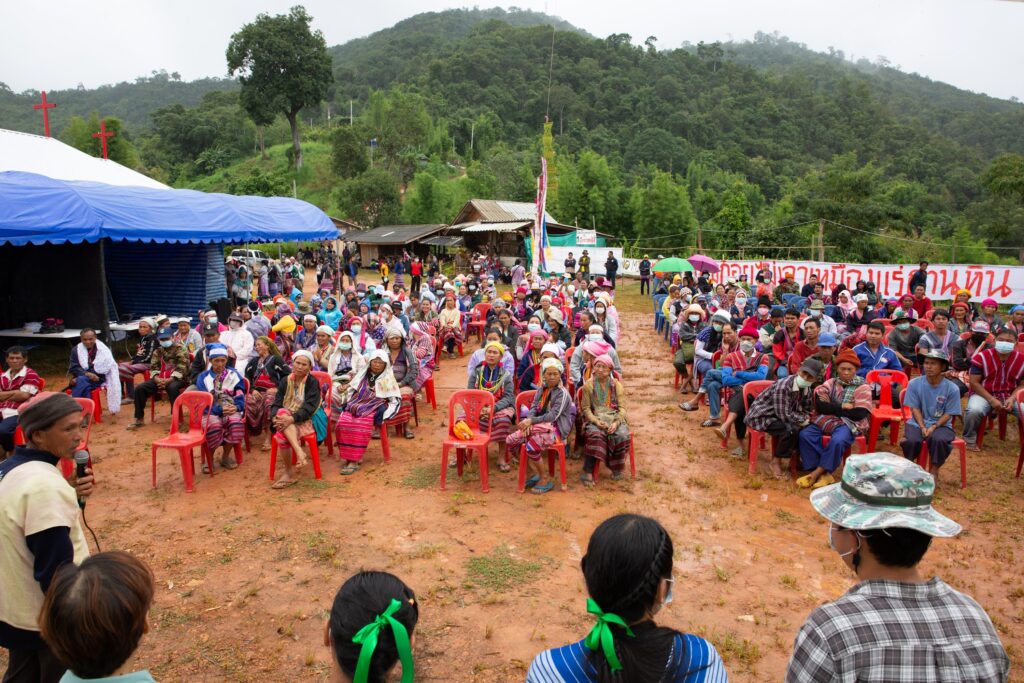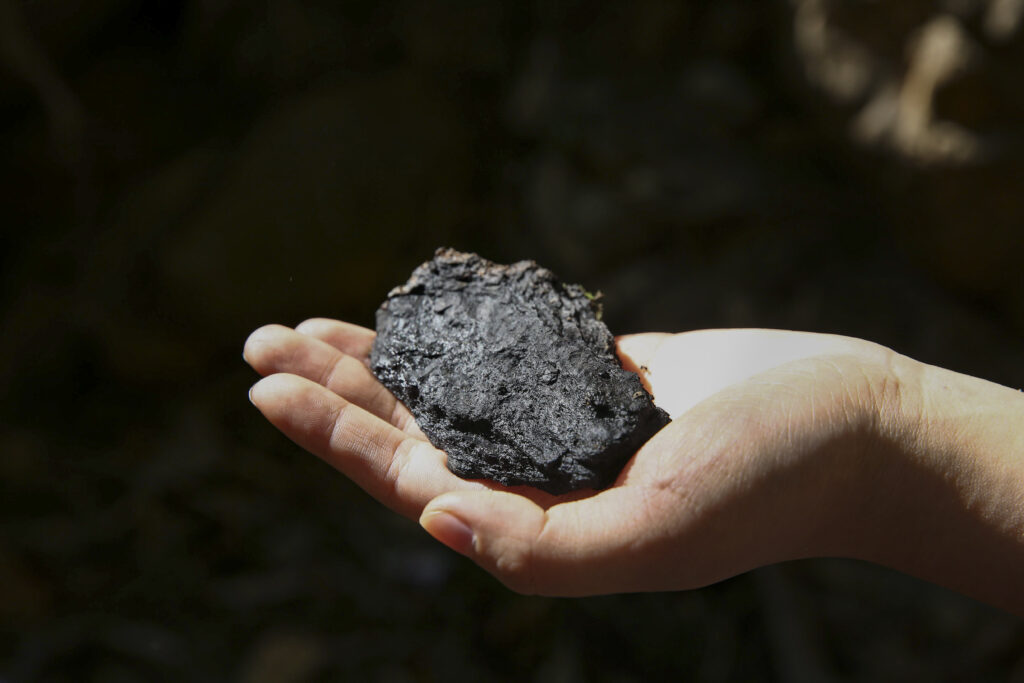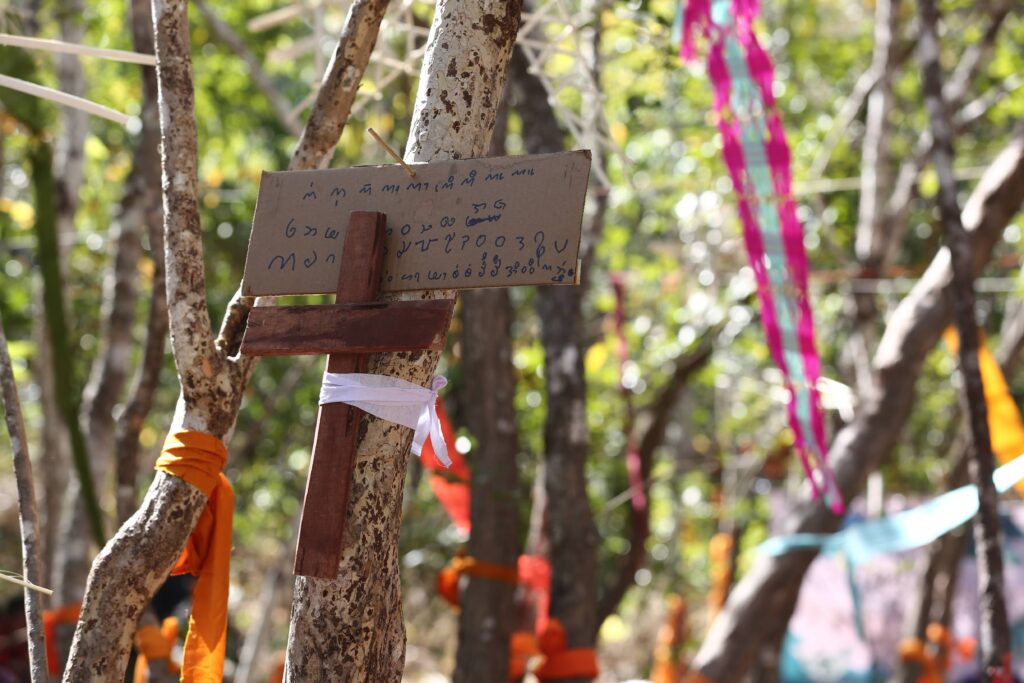The struggle will never end as long as this land remains designated as a mining area for industrial purposes.
For over five years, the indigenous Karen people of Kaboedin in Omkoi, Chiang Mai, Thailand, have stood firm in protecting their land, water sources, and community resources. They began with the formation of a small group of villagers, including youth, women, leaders, and elders. They developed various strategies to fight, such as submitting petitions, negotiating, creating networks, learning from other communities, and filing lawsuits. They have joined forces with different communities, residents, and civil society networks to halt the planned coal mine in Omkoi collectively.
Although they have managed to delay the coal mine so far, it cannot yet be called a true victory for the community. However, it is not a defeat either. What, then, is the true victory for the community? How long must the community fight? How many generations will it take to end this?

Invasion and seizure of resources through law
If we trace back to the root of the problem leading to this prolonged struggle, it is the declaration of the area as a mining zone for industrial purposes in Thailand under the Minerals Act. It led to the creation of a mineral management master plan within the framework of the Minerals Act, in which the public had no actual participation. This master plan also conflicts with the Minerals Act.
Looking back at the community context of Kaboedin, even though it has been declared a mining zone for industrial purposes, the area holds ancient artifacts, sacred forests used for rituals, watersheds, and groundwater recharge areas, which should be off-limits to mining according to the Minerals Act. Mining would affect the community’s health, lifestyle, society, and local economy. Thus, the law is a significant cause of the problems faced by the community. Therefore, the state must immediately revoke the designation of Kabeodin as a coal mine area.

Unfulfilled phase-out of coal
Globally, there is talk about the need to reduce fossil fuel use and phase out coal, a significant cause of climate change and global warming. However, at Kaboedin, the state still permits corporate concessions for coal mines on fertile land rich in resources, watersheds, and sacred forests of the community, contrary to global trends.
In mid-2023, U.N. Secretary-General António Guterres declared that the era of global warming had ended and that the world was entering a new era of “global boiling”. This rapid climate change affects people worldwide, including the Kaboedin community. This community not only has abundant resources but also grows the famous “yong chai”, a tomato variety which serves as an economic staple of the community for over 20 years. The tomato is sent to the provinces of Pathum Thani and Tak, as well as the canned fish factory in Chiang Mai.

Community recommendations and stance
The community’s stance is clear: they do not want the coal mine. The community must have the power to decide its future and manage its resources. Meanwhile, the state and corporations must stop violating community rights through unfair laws, policies, and practices and restore the environment damaged by development projects that affect the way of life and environment nationwide.
The recommendations are as follows:
- The state must immediately cancel the second mineral management master plan.
- The state must urgently reconsider the phase-out of fossil fuels and declare a 100% coal phase-out by 2035. Thus, from now on, there should be no more coal mines in Thailand.
- The state must enact laws or policies to ensure that polluters are held accountable under the “polluter pays principle”.
The future and well-being of the indigenous Karen community in Kaboedin, who live amid beautiful mountains and diverse resources, depend on laws, policies, and genuine recognition and respect for their way of life. The spiritual values, beliefs, and traditions embedded in this land for over a hundred years are priceless. They should not be replaced by a coal mine from which the community does not benefit at all. The monetary gain from a coal mine is incomparable to the invaluable worth of the community.
Read the Thai version here.
This blog is written with contributions from LANNER.






